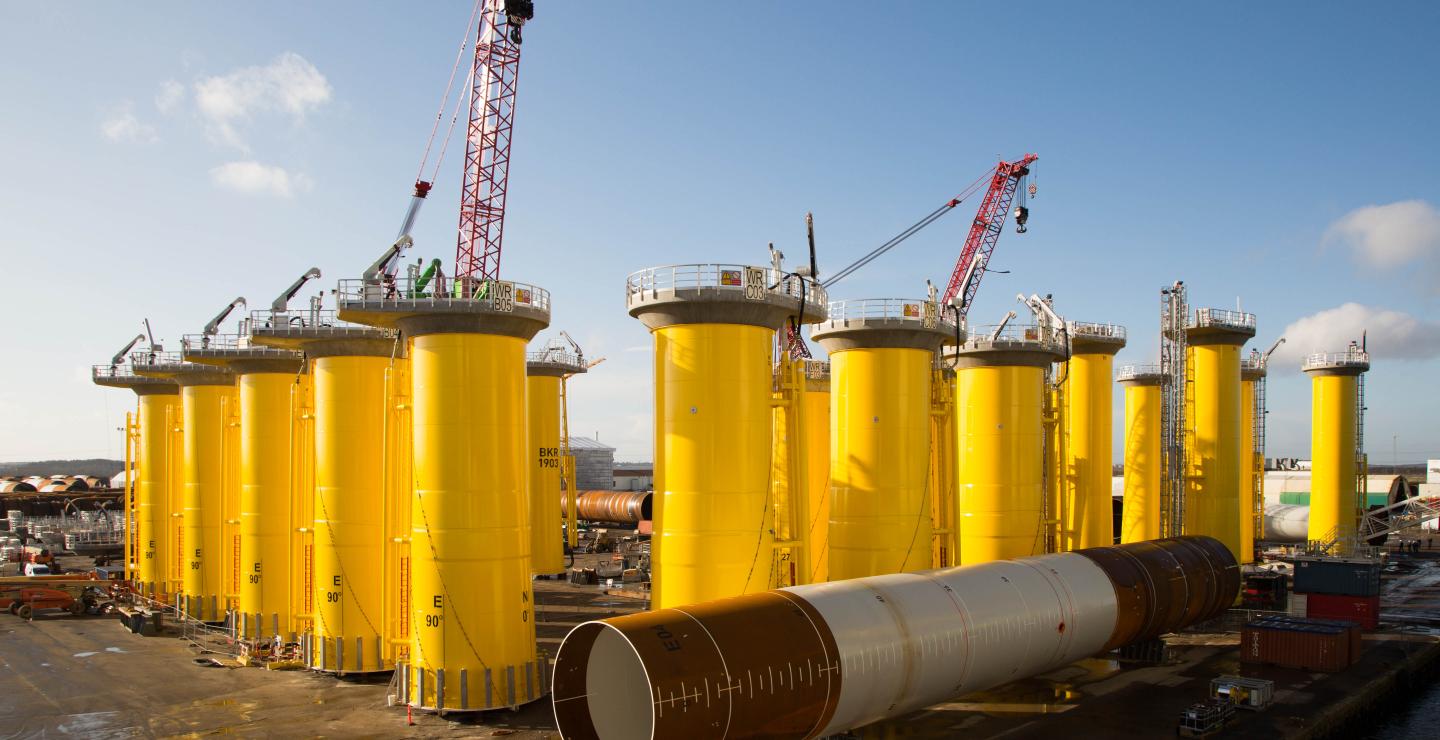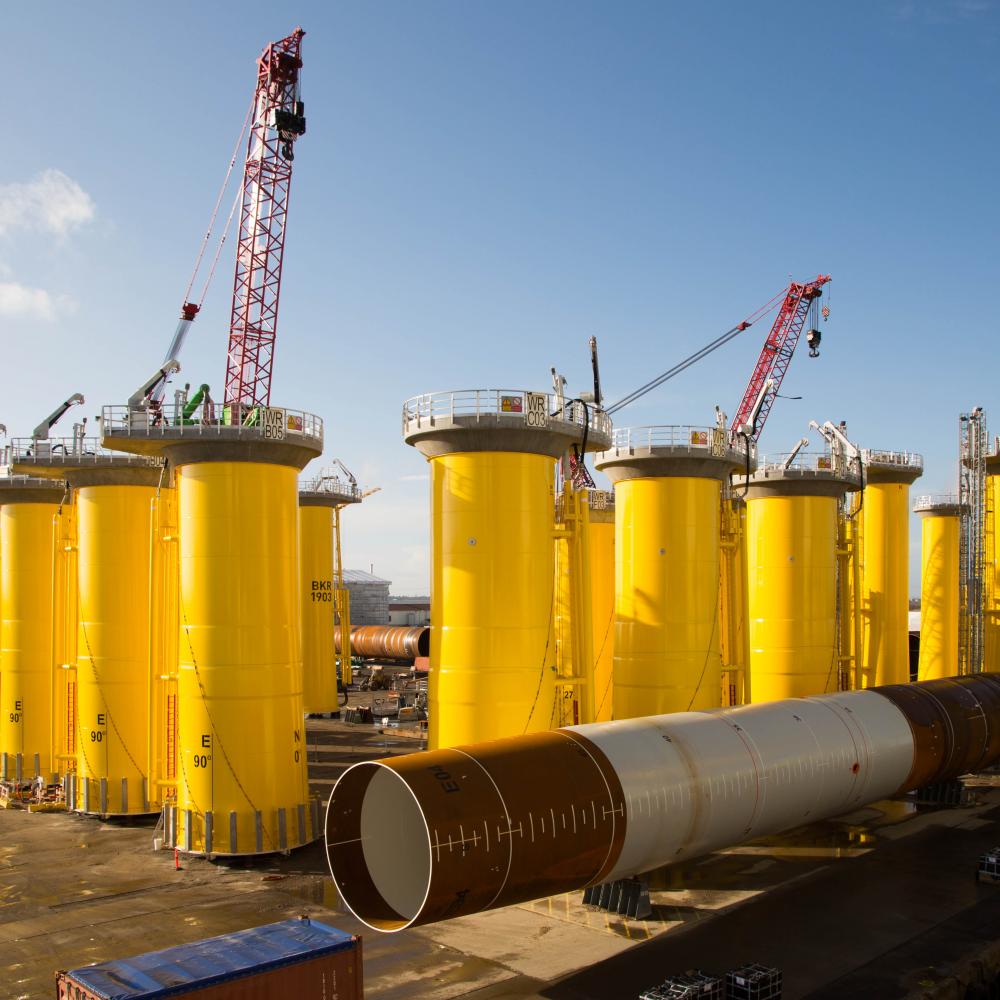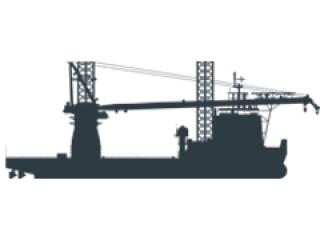The 35 km² Westermost Rough offshore wind farm is located at about eight km off the east coast of England, next to the city of Hull. It was commissioned in the first half of 2015 and was constructed by a subsidiary of the Danish company DONG Energy, the largest operator of offshore wind farms.
Some 35 wind turbine generators (WTG) and one substation are installed at Westermost Rough, providing a total capacity of 210 MW. It is the first full scale commercial application of the Siemens 6 MW turbine. The WTG’s are installed on top of monopiles with a diameter of 6,5 m and weighing between 500 tonnes and 810 tonnes each. Transition pieces weigh around 367 tonnes each.
Manipulating such volumes and weights in offshore conditions is quite challenging. In addition, the 500 miles distance between the fabrication yard and the offshore installation site required thoroughful planning with regard to limiting off-time, decreasing operations cycle time, and economic execution of the project.


